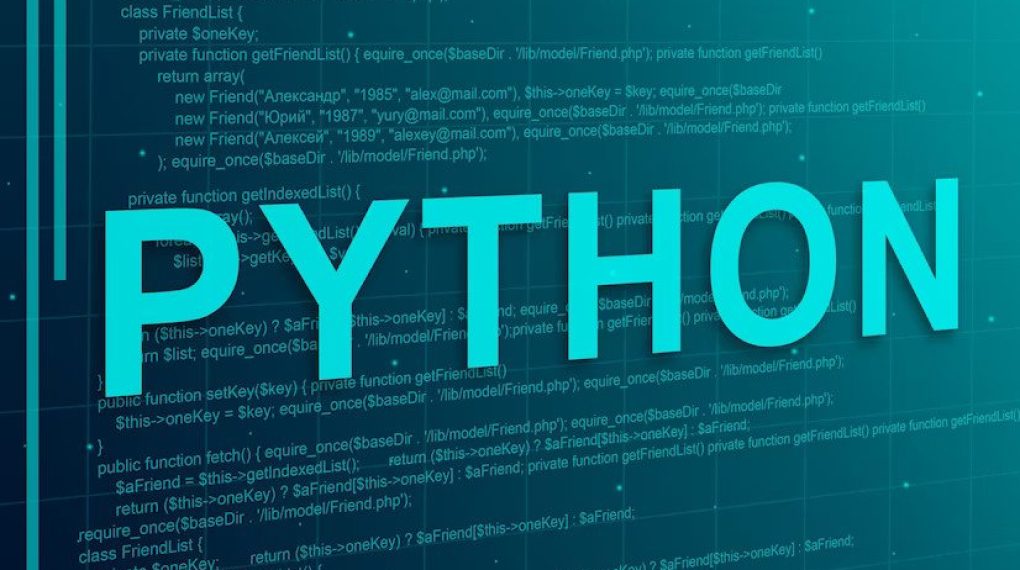
Python is one of the most secure, robust, and versatile programming languages for building essential web apps, data analysis and visualization aids, AI/ML projects, scripting and automation processes, desktop apps, gaming apps, IoT software, and more. It is only natural that developers want to know the secure coding best practices in Python since it is such a promising framework.
Why is Python an ideal choice for a secure web application?
Before getting into the best practices for securing Python let’s see why we should use Python for building secure applications. Python has many built-in tools, features, functionalities, and support, making it an ideal framework for building a secure framework (see this comparison between Python VS JavaScript to find out why).

Let’s see what they are –
1. Robust Standard Library
Python has one of the most impressive standard libraries that provide developers access to some of the most useful built-in modules and functions and security-related functions. The standard library itself includes libraries for cryptographic operations, secure file handling, socket communication, and much more.
2. Third-Party Libraries
Suppose the already provided security measures in the standard library need more. In that case, Python also has access to some of the most popular security packages, libraries, and frameworks that offer additional security features. For instance, Django is a Python framework built with security in mind, and there are libraries like cryptography that protect against common web vulnerabilities like cross-site scripting, cross-site request forgery, and others.
3. Well-Tested and Mature Library
Nothing beats experience and proof of concept. Python is one of the most mature languages used and adopted extensively in industries like BFSI, Healthcare, and others that require security features since they deal with sensitive user data and financial data. Also, since Python has a large and active community of developers, it has been under constant testing and development, ensuring the platform’s reliability and stability.
4. Active Community and Useful Resources
Python has a vibrant community of developers, testers, mathematicians, scientists, and other professionals who actively share their knowledge and discuss important topics. Many readily available resources can be used for your project as well as active community forums with tutorials, questions, answers, and all the important resources needed. Developers can easily find exclusive security guidelines, tips and tricks, and other important materials.
5. Cross-Platform Compatibility
Python is a cross-platform language that enables developers to make web applications that can be deployed on any operating system with minimum modifications. This reduces the risk of security concerns that arise from platform-specific security vulnerabilities.
6. Adherence to Security Protocols and Standards
Python supports industrial-grade security standards and protocols like SSL/TLS encryption, OpenID Connect, OAuth, and SAML. These integrations can help enable secure authentication, communication, and authorization processes and compliance with industry-grade standards.
7. Support for Test-Driven Development
Python has robust built-in testing frameworks like PyTest, Unittest, and others that encourage Python developers to follow test-driven development processes. By implementing proper test suites, you can quickly uncover code vulnerabilities and take appropriate mitigation steps to avoid the likeliness of newer security threats.
Secure Coding Practices in Python
Even after having so many in-built security coding practices in Python, you can always take your Python security a notch higher by following some of the best tips and tricks to secure coding in Python. You can hire Python developers with the necessary skills and knowledge of these best practices from a reliable Python development agency.

Let’s check out some of the best security practices that can help you secure your Python codebase –
1. Input Validation
You should always validate and sanitize user inputs to prevent common security risks like cross-site scripting, cross-site request forgery, SQL injections, and other attacks. Use appropriate validation strategies and techniques like parameterized queries, input filtering, and HTML escaping.
2. Using Secure Authentication and Authorization Mechanism
You should implement strong authentication and authorization mechanisms to ensure that only authorized personnel are able to access sensitive information. You should also use HTTPS protocol for conducting secure sessions to protect users from exploiters.
3. Secure Password Storage
Python allows secure password storage through mechanisms like password hashing using solid cryptographic algorithms with unique salt for each user. You can hire dedicated developers with Python security expertise to set up proper password hashing techniques and other secure password storage facilities.
4. Implement the Least Privilege Principle
Follow Python’s principle of least privilege when granting permissions and proper access rights to processes, users, and services. This will allow you to provide only the most required privileges for specific tasks and limit their scope of actions.
5. Conduct Regular Security Audits
Implementing security best practices is the first step towards a secure Python codebase. However, if you genuinely want to maintain the safety of your Python project, you need to conduct periodic security audits to reassess the system and its working condition. Check the codebase with unit, penetration, and other tests to identify any new vulnerabilities in your application. This proactive approach ensures the code’s reliability and robustness and prepares you for unforeseen attacks.
6. Secure Data Handling and File Permissions
File Permissions need to be handled with utmost care. To whom you give what access and control needs to be thought out thoroughly. Moreover, you need to validate and sanitize file uploads to prevent path traversal attacks and reduce the chances of someone getting unauthorized access to your sensitive files.
7. Stay informed and updated on the latest Python security vulnerabilities.
As a Python developer, you should always be up-to-date on any latest Python news, updates, or discussions, especially regarding security packages, discussions, and concerns. You can join active Python communities or Slack and Discord channels where developers share their personal experiences and workarounds on newly found security vulnerabilities.
8. Granular Session Revocation
Granular Session Revocation adds a security layer in Python apps by allowing administrators to invalidate specific user sessions. For instance, if there’s a compromised user or suspicious activity in one particular account, granular session revocation will enable admins to invalidate that particular session/account instead of invalidating all sessions, which would disrupt the other legitimate users. This reduces the overall impact of fixing issues without disturbing the entire system.
9. Session Monitoring and Intrusion Detection
Session management is an excellent tool in Python that can be used for monitoring and detecting any unusual activity during the session. When you implement session monitoring and intrusion detection systems, Python apps can identify a possible ‘threat’ and respond to a security breach or attempt at a security breach.
10. Security Standards Compliance
You should always ensure that your Python project follows security standards and best practices outlined by credible resources like OWASP (Open Web Application Security Project), which provides essential guidelines for mitigating common web app vulnerabilities. Any developer who adheres to such guidelines shows the client that they’re committed to coding securely and care about the project’s security.
Final Words
You should follow These top security practices in Python to ensure the maximum security of your Python project. Following these security best practices in Python also subsequently result in improved performance and quality of your project. Hence you should follow them and secure your Python codebase.
Read Also:






